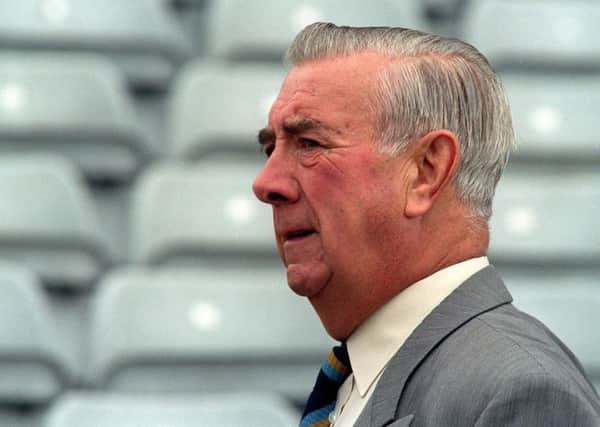Sir Lawrence Byford, former HM Inspector of Constabulary


As the author of a highly critical report into the failings of West Yorkshire Police in their hunt for the Yorkshire Ripper in the 1970s and early 80s, he set in motion fundamental changes to the way such investigations would be handled in the future – not only in Britain but around the world.
He went on, following the IRA’s bombing of the Conservative Party conference at Brighton in 1984, to engineer the security arrangements at similar events which survive to this day.
Advertisement
Hide AdAdvertisement
Hide AdLawrence Byford, the son of George and Monica Byford, left school in his early teens without any qualifications and, after attending a metalwork course at his local technical college, became an apprentice electrician working at a local pit.
In August 1944, at 19, he was called up, yet managed to complete his exams whilst attending his training course with the Royal Signals at Bletchley.
He joined the Royal Signals Special Communications Unit as a wireless operator and in December 1944 found himself being dispatched to “Triumph”, the Supreme Headquarters of the Allied Expeditionary Force, then based at Versailles.
He was seconded to G2 Section of the US Army and served between 1944-45 in France, Belgium and Germany. A chance personal encounter with Lieutenant-General Leonard T. Gerow, whilst working at the Chateau D’Ardennes in Belgium, was to change his life. He realised that with hard work and application, he could become a leader of some kind himself and would not necessarily have to return to work down the Yorkshire mines at the war’s end.
Advertisement
Hide AdAdvertisement
Hide AdFollowing demobilization, he joined the West Riding Constabulary, and worked primarily as a detective before advancing through the ranks to become Divisional Commander in Huddersfield in 1966.
In 1973, he was appointed Chief Constable of Lincolnshire. Throughout his early career, he also studied part-time for qualifications to offset what he perceived as a lack of education in his childhood years. He graduated from Leeds University in 1956 with a law degree and two years later was called to the Bar at Gray’s Inn.
In 1977, he was appointed an Inspector of Constabulary and in 1983 became Chief Inspector of Constabulary, the principal professional adviser on police matters to the Home Secretary and other ministers. He was knighted in 1984.
Following the conviction of the Yorkshire Ripper, Peter Sutcliffe, in 1981, and amidst widespread public criticism of the length of time it had taken to bring him to justice, Byford was appointed by the Home Secretary, William Whitelaw, to conduct an inquiry into all aspects of the case. It recommended changes in investigative procedures that have been adopted throughout the police service worldwide.
Advertisement
Hide AdAdvertisement
Hide AdHe lectured widely in Britain and at the FBI and the National Police Foundation in Washington DC. Earlier, in 1978-79, he led a Foreign Office consultancy team to Turkey, advising the government there on terrorism and internal disorder.
In retirement, he became President and Chairman of Yorkshire County Cricket Club, where under his leadership, the committee was persuaded to abandon the rule banning the hiring of overseas players, and shortly thereafter the club signed a 19-year old Indian called Sachin Tendulkar.
In 1987, he was appointed a Deputy Lieutenant of Lincolnshire and in 1992 a Deputy Lieutenant of North Yorkshire. He received an honorary doctorate from Leeds University for his outstanding contribution to public service and criminal justice in Britain.
He named his home ‘Dalefield’ after the Normanton council estate on which he had grown up, and in 2012, the town council named him its Diamond Jubilee Honorary Citizen. It was, he told the gathering of dignitaries and local citizens, “the greatest honour of them all”.
Advertisement
Hide AdAdvertisement
Hide AdHe was married for 67 years to Muriel, nee Massey, and the couple had three children – Mark, who went on to be the BBC’s deputy director-general, Bill and Jill; eight grandchildren and two great-grandchildren.